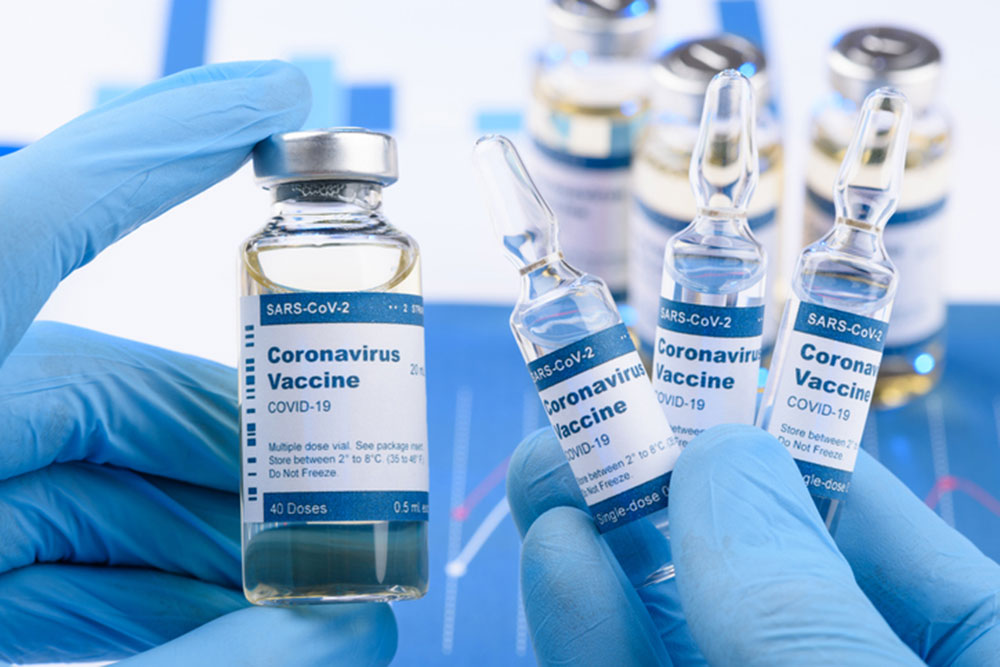
iStock
“WINTER is coming” was the oft-repeated threat from Game of Thrones that opened MyLittleBird’s autumn 2022 article on viruses and vaccines. Again, like last fall, readers are asking for an update on vaccinations: which ones to get, when to get them and notably what to do about the vaccine against RSV (respiratory syncytial virus). In last winter’s “tripledemic” of Covid, flu and RSV, according to the New York Times, the “serious consequences of [RSV] were on full display…when the virus overwhelmed hospitals alongside the flu and Covid.”
The newest Covid vaccine—expected to be available in late September—should boost immunity against the Omicron variants that have dominated since last winter. With advice to get the new shot as soon as possible, Yale ER physician Megan Ranney notes: “Your strongest immunity will be in the two weeks to two months after you get your vaccines…while nearly all of us have immune systems that can recognize key parts of the virus now, even that memory of the infection fades over time.”
“The longer it has been since you’ve been infected or vaccinated, the more forgetful your immune system becomes,” Ranney explained. “Those B cells and T cells…they’re going to be a little slower to respond. That lag may give the virus enough of a window to get a foothold in our nasal passages or lungs, and we get sick [and then the immune system responds]. But for many, their immune system just doesn’t kick in as quickly or as vigorously as it should…immune function drops off naturally with age.”
After attending a party of 17 women in their 50s, 60s and 70s, Yoga instructor T.R. and nine other guests came down with Covid—with one admitting she had felt sick beforehand —an unusually high rate of contagion. “Covid-19 infections have started to rise again… it feels like people all over the country are testing positive,” according to CNN. And from the New York Times: “with a late summer wave of infections, hospitalizations increased 24% in the two-week period ending August 12, and wastewater monitoring shows a recent rise in Covid infections in the West and Northeast.”
For the flu vaccine—which can be received at the same time as the Covid shot—getting it later in September rather than sooner can help ensure that protection lasts through the winter flu season. While recommendations for flu specify getting the updated shot every fall, the Covid vaccine schedule remains undecided: for now, people can get boosters anywhere from three to six months after their previous shot.
The two RSV vaccines—which may end up on an every-two-year schedule—have proved 80% effective in clinical trials at “preventing lower respiratory symptoms such as cough and shortness of breath,” according to the New York Times. But rather than recommending the RSV shot to everyone 60 or 65 and older, the CDC’s current advice is that people talk to their doctor to weigh the benefits and risks.
The CDC “included this extra step in part because of the potential for…severe, albeit very rare, side effects,” American Academy of Family Physicians President Tochi Iroku-Malize told the New York Times. Of about 38,000 people who received one of the two RSV vaccines in clinical trials, 20 experienced atrial fibrillation and six had “neurological complications”—that included encephalomyelitis and Guillain-Barre syndrome.
In the absence of a clear recommendation from the CDC, reimbursement for the RSV vaccine is not automatic: Anyone on Medicare who does not have the optional Plan D prescription drug plan, as well as many people who have private insurance, must obtain a doctor’s prescription or risk being charged several hundred dollars for the shot. Iroku-Malize suggests that people with underlying health conditions may benefit most from receiving the RSV vaccine.
While RSV has infected almost everyone by age two. and is most worrisome in babies under six months, the National Foundation for Infectious Diseases calls RSV in adults aged 65 and older “a hidden annual epidemic.” In this age group, RSV causes 6,000 to 10,000 deaths annually—compared to 16,000 deaths linked to flu during the 2019-2020 season. Flu, RSV and Covid can have similar symptoms –- including sore throat, runny nose and cough, similar to those of a cold— but infection spreading to the lower respiratory tract, sometimes signaled by a “barking or wheezing cough,” can cause more serious illness.
Anyone worried about risks due to getting multiple vaccines, “routine adult vaccination… may be an effective strategy for dementia prevention,” write Chinese researchers on a multicenter study that found “all types of vaccinations were associated with a trend toward reduced dementia risk.” Their research “suggests that the immune system and infections play an important role in the development of dementia: bacterial, fungal and viral infections may cause neurotoxic inflammation and oxidative stress in the brain, which can lead to neurodegeneration.”
Once the CDC approves the new Covid vaccine, I’m ready to sign up. Also, in part for the chance at boosting brain health, I had been set to get the RSV vaccine—but now, with the risks in mind, I will confer with my doctor before deciding. For the more immediate quandary about highly infectious Covid, I have read the advice—to wear a mask when spending more than 10 minutes in an enclosed space with people closer than elbow-to-elbow—but am still pondering my options.
—Mary Carpenter regularly reports on topical subjects in health and medicine.

Mary, thanks for the important update on vaccines. My husband and I plan to get the new COVID vaccine along with our annual flu shot. We’ll talk to our doctor about RSV. I didn’t know the side effects. I guess the COVID shots are definitely now every six months or so, right?